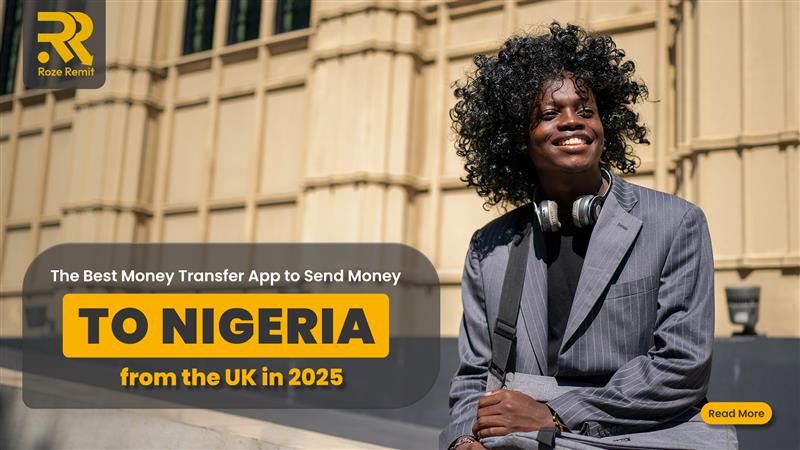Sending Money to Ghana: The Complete Guide to International Money Transfers
02 June 2025

In today’s interconnected world, the ability to send money to Ghana quickly, securely, and affordably has never been more important. Whether you are supporting family, paying for services, or conducting business, the landscape of international money transfers is evolving rapidly, offering more choices and greater convenience than ever before. This article examines the most effective methods for sending money to Ghana, the emergence of digital remittance services, and the significant role these funds play in Ghana’s economy and the broader West African region.
The Growing Need for Reliable Remittance Services
Ghana, like many African nations, relies heavily on remittances from its diaspora. These funds are vital for supporting families, investing in education, and fuelling local businesses. The World Bank estimates that remittances to sub-Saharan Africa reached over $50 billion in recent years, with Ghana consistently ranking among the top recipients. For many Ghanaians abroad, the ability to send money home is not just a matter of convenience, it’s a lifeline.
Why Remittances Matter
Support for families and dependents
Investment in education and healthcare
Capital for small businesses and traders
Economic stability and poverty reduction
How to Send Money to Ghana: Options and Innovations
Traditional Bank Transfers
International bank transfers remain a popular method for sending money to Ghana. These transfers typically use the SWIFT network, requiring the sender to provide the recipient’s bank details, including IBAN and SWIFT/BIC codes. While secure, this method can be slow, taking several days and often incurs high fees, sometimes up to $50 per transaction. Additionally, both sender and recipient must have accounts with banks that support international money transfers.
Money Transfer Operators (MTOs)
Money transfer agents such as MoneyGram and Western Union have long dominated the remittance market. These services offer cash pickup at thousands of locations across Ghana, making them ideal for recipients without bank accounts. However, fees can be substantial, and exchange rates may not always be favourable.
Digital and Mobile Money Platforms
The rise of fintech has transformed the remittance landscape in Ghana. Companies like Flutterwave, WorldRemit, TransferGo, and Revolut are leveraging technology to make sending money faster, cheaper, and more accessible.
Flutterwave: Has received approval from the Bank of Ghana to offer inward remittance services, reflecting the country’s commitment to a robust fintech ecosystem. Flutterwave’s entry is expected to enhance security, efficiency, and financial inclusion for Ghanaians.
Roze Remit: Offers transfers via cash pickup, mobile money, and bank transfer, providing flexibility for both senders and recipients.
TransferGo: Known for real-time money transfers, TransferGo enables users to send funds to Ghana in as little as a few minutes, with low or zero fees and robust security measures.
Revolut: Frequently cited as the cheapest way to send money to Ghana, Revolut charges no transfer fees and offers competitive exchange rates, especially for bank transfers.
Mobile Money’s Impact
Mobile money platforms now handle approximately 60% of foreign exchange inflows in Ghana. Services such as MTN Mobile Money, AirtelTigo, and Vodafone Cash allow recipients to receive funds directly to their phones, which can be withdrawn at agents nationwide or used for everyday purchases. This system is particularly valuable for recipients in rural areas without easy access to traditional banks.
Step-by-Step: How to Send Money to Ghana
1. Choose Your Provider
Compare fees, exchange rates, and delivery times.
Consider whether you want a bank transfer, cash pickup, or mobile wallet delivery.
2. Gather Recipient Details
Full name (as on ID)
Bank account or mobile wallet details (if applicable)
Valid ID for cash pickups
3. Initiate the Transfer
Register with your chosen provider.
Enter the amount and recipient information.
Select payment method (bank transfer, debit/credit card, etc.).
Confirm and pay.
4. Notify the Recipient
Share the transaction reference or secure code.
Recipients may need to present ID and the code for cash pickups.
GCB Bank: A Case Study in Local Excellence
GCB Bank, one of Ghana’s largest financial institutions, offers a suite of international money transfer services tailored to both GCB customers and non-customers. Their GCB Xpress Money Transfer allows instant transfers between branches, making it ideal for small businesses, traders, and families with children in higher education. The service is accessible at over 157 branches nationwide, with funds available upon presentation of a secure code and a valid ID.
Key Benefits:
Available to all, regardless of bank affiliation
Real-time delivery of funds
Large branch network
Secure and competitive rates
Minimal paperwork and hassle
For international transfers, GCB partners with leading global operators, ensuring that funds sent from abroad are delivered promptly and securely to recipients across Ghana.
Nigeria Remittance Services: A Regional Powerhouse
Nigeria, as Africa’s most populous country, is a major player in the remittance sector. Nigeria-based fintech firms like Flutterwave are expanding across West Africa, including Ghana, bringing with them innovative, tech-driven remittance solutions. This regional integration is enhancing the efficiency and affordability of Nigeria remittance services, benefiting both Nigerian and Ghanaian communities across the continent.
Choosing the Best Method: Factors to Consider
Security and Regulation
Security is paramount when sending money internationally. Leading providers are regulated by financial authorities such as the UK’s Financial Conduct Authority (FCA) and comply with anti-money laundering laws. End-to-end encryption, robust customer support, and transparent processes ensure that funds and personal data are protected at every step.
Expert Tips for Sending Money to Ghana
Compare providers: Fees and exchange rates vary widely. Use comparison tools to find the best deal.
Avoid credit cards: These often incur cash advance fees and higher interest rates.
Use bank transfers or mobile money: These are generally the most affordable and secure methods.
Check transfer limits: Many services cap daily or monthly transfer amounts (e.g., $2,500 per transaction).
Prepare documentation: Both the sender and the recipient may need to verify their identity to comply with regulations.
The Future of Remittances: Innovation and Inclusion
The remittance industry in Ghana is poised for further growth, driven by digital innovation, regulatory support, and increasing financial literacy. The Bank of Ghana proactive stance, combined with the Ghana Digital Agenda, is fostering an environment where fintech firms can thrive, bringing more Ghanaians into the formal financial system.
As more companies enter the market, competition is driving down costs and improving service quality. The integration of Nigeria's remittance services and the expansion of mobile money platforms are set to make sending money to Ghana even more accessible and affordable.
Conclusion
The ability to send money to Ghana has never been more efficient, secure, or affordable. Whether you are using traditional banks, international money transfer agents, or cutting-edge mobile and digital platforms, there are solutions to fit every need and budget. As technology continues to advance and regulatory frameworks evolve, Ghanaians at home and abroad can look forward to even better services in the years to come.




